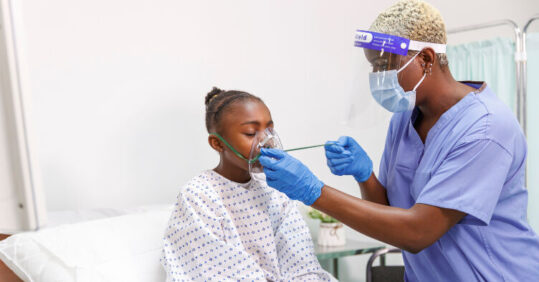Two pieces of novel guidance on pneumonia have been released today by the British Thoracic Society (BTS) to improve understanding in learning disability.
The BTS says that it hopes these pieces of guidance, which specifically cross-reference each other, will ‘help reduce the knowledge gap in this important area’.
Related Article: Community nurses call for more ‘GP back-up’ in palliative care decisions
Martin Allen, interim national clinical director for respiratory medicine, said: ‘The learning from deaths reviews in patients with learning disability and autism (LeDeR) show a high morbidity and mortality from aspiration and community acquired pneumonia.
‘These two articles are thus a welcome addition to optimising the care for these individuals from both a clinical and holistic perspective.’
This is a different type of condition to community acquired pneumonia which is largely caused by breathing in pathogens such as bacteria or viruses.
Related Article: All GP practices to be trained in supporting veterans in £1.8m programme
Dr Julian Legg, lead author of the BTS Clinical Statement on the prevention and management of community acquired pneumonia in people with learning disability, said: ‘People with learning disability are at increased risk of morbidity and mortality from community acquired pneumonia because of multiple factors including underlying medical conditions and communication barriers.
‘By recognising this risk, healthcare providers can take appropriate steps to ensure timely risk factor recognition, diagnosis and treatment, and work with patients, families and carers to implement pertinent, preventative measures.’
Dr Legg also believes that these two statements will raise the profile and interest in aspiration pneumonia.
Related Article: Action needed on ‘damaging’ school nurse decline to help tackle STI rise
The clinical statements are intended to offer medical professionals guidance by addressing key considerations in the prevention, diagnosis and management of the two conditions.
Paul Walker, BTS chair, said: ‘Some of the most important learning from Covid-19 concerned the management of pneumonia in people with disability, including learning disability. We hope these clinical statements will lead to improvement in care both in people with learning disability and a wider group of people with pneumonia.’






